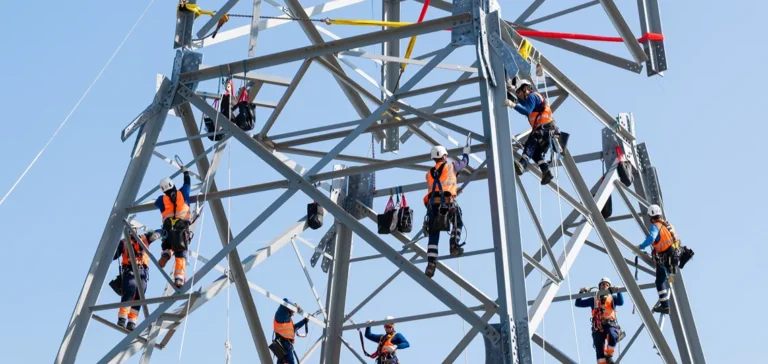TenneT Holding announced an increase in its revenues and operating profit in the first half of 2025, driven by accelerated investments in electricity transmission networks in the Netherlands and Germany. Total investments amounted to EUR 5.5 bn ($5.96bn), compared to EUR 4.6 bn ($4.99bn) over the same period last year. This increase is mainly explained by the ramp-up of onshore projects, despite several delays observed in the Netherlands.
Strengthening the organisational structure
Since 1 January 2025, TenneT Holding has operated with two independent entities, TenneT Netherlands and TenneT Germany, both attached to the holding company. This reorganisation has been accompanied by adjustments in management teams, with the appointment of new members to leadership positions in Germany and the Netherlands. At the same time, the Dutch Ministry of Finance confirmed that, together with management, it is considering the options of an initial public offering or a private placement for TenneT Germany, with a decision expected in September 2025.
The underlying financial results reflect the group’s momentum: half-year revenue rose to EUR 4.4 bn ($4.77bn) and operating profit (EBIT) reached EUR 1.5 bn ($1.63bn), compared to EUR 4.1 bn ($4.44bn) and EUR 1.0 bn ($1.08bn) respectively for the first half of 2024. This growth is partly linked to the sale of NOVEC’s activities, an operator of antenna towers.
Major projects and network challenges
In the Netherlands, the completion of reinforcement works in the Zeeland region and the installation of the topside for the Hollandse Kust (west Beta) project in the North Sea illustrate progress on key sites. However, TenneT reported delays in other projects due to prolonged permitting procedures and difficulties in sourcing strategic components. To address these challenges, an acceleration plan was launched in partnership with the Dutch Ministry of Climate Policy and Green Growth, aimed at significantly reducing commissioning times and tackling network congestion.
In Germany, the start of construction on the Hardebek substation and the Netzbooster facility in Schleswig-Holstein marks a new stage in strengthening the grid. In the offshore segment, the commissioning of the BorWin 5 and DolWin 5 converter platforms increases transmission capacity to nearly 10 gigawatts in the German North Sea.
Optimisation and innovation in electrical capacities
Faced with strong growth in solar power, which now exceeds 100 gigawatts of installed capacity in Germany, TenneT is implementing multiple measures to ensure system stability and network flexibility. The use of solutions such as Dynamic Line Rating (DLR), which optimises the use of lines according to weather conditions, has unlocked up to 30% additional capacity.
In April 2025, TenneT announced the availability of 9.1 gigawatts of additional capacity during off-peak hours in the Netherlands thanks to Time-Dependent Transmission Right (TDTR) contracts. These contracts offer customers the possibility to reserve transmission capacity at reduced rates for specific periods, with flexibility for adjustments determined by the operator.
The company plans to invest a total of EUR 200 bn ($216bn) by 2034 in the expansion and modernisation of electricity infrastructure in the Netherlands and Germany. Public support is also ensured, with a Dutch state guarantee of EUR 52 bn ($56.2bn) intended to secure around EUR 90 bn ($97.2bn) of investments over ten years for the Dutch subsidiary.
Manon van Beek, Chairwoman of TenneT Holding, emphasised the importance of innovation and cross-border cooperation in building a resilient electricity system: “The solutions exist to create space on the grid, if we know how to make the right choices.”






















